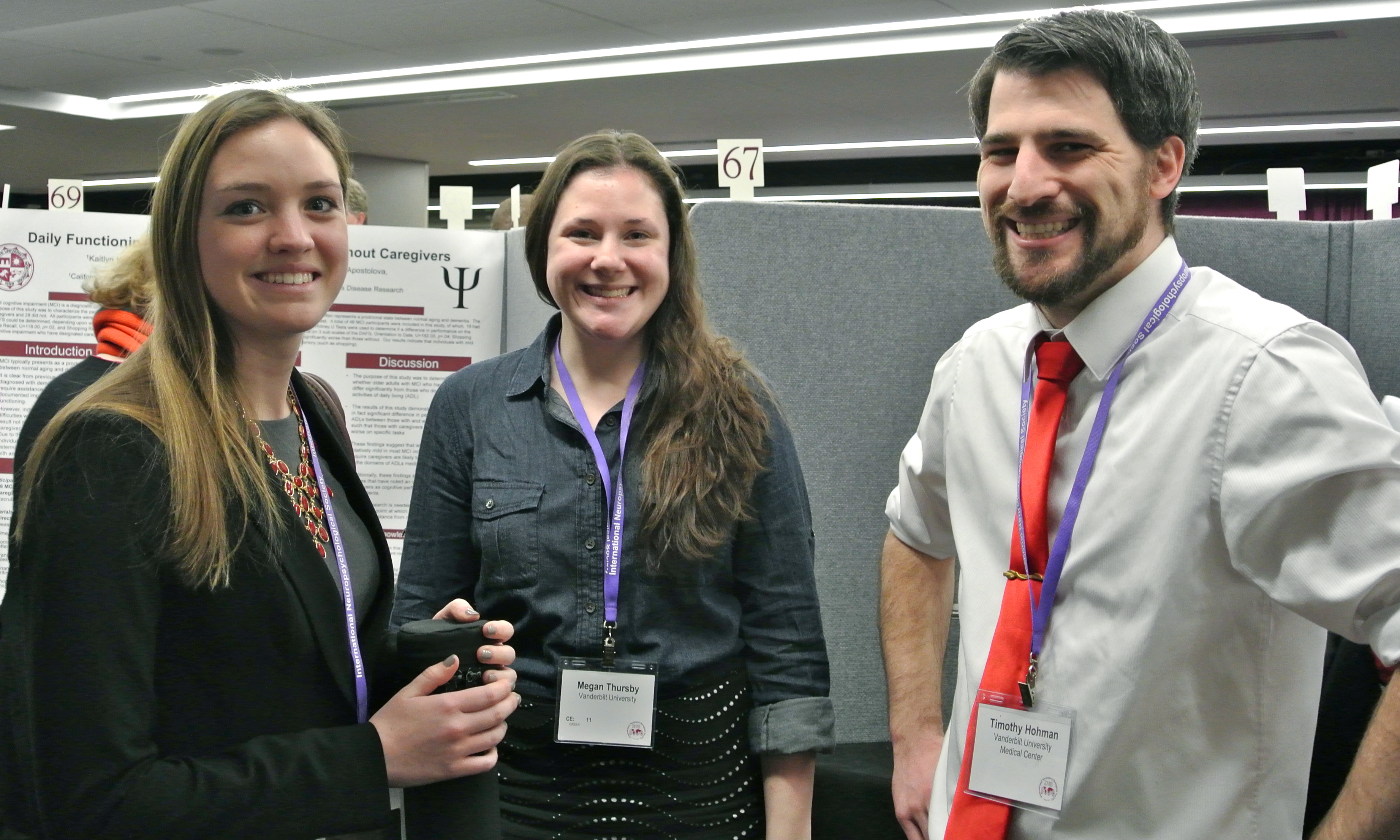 Members of our Memory & Aging Project (MAP) team traveled to Boston, Massachusetts to join national and international experts studying neuroscience and brain health at the International Neuropsychological Society (INS) Conference. We are proud to announce that our team delivered 8 research presentations at this 4-day conference.
Members of our Memory & Aging Project (MAP) team traveled to Boston, Massachusetts to join national and international experts studying neuroscience and brain health at the International Neuropsychological Society (INS) Conference. We are proud to announce that our team delivered 8 research presentations at this 4-day conference.
Our lead scientist, Dr. Angela Jefferson, presented on the connection between red blood cells and cognitive health in older adults. Dr. Jefferson looked at how MAP participants performed on various memory and thinking tasks. These tasks include naming objects from a picture, following directions, and remembering instructions. She found that MAP participants who have a higher number of red blood cells (and carry more oxygen in their blood) have higher scores on memory and thinking tasks.
Dr. David Libon presented on working memory. Working memory is the ability to juggle many pieces of information in your mind at the same time while storing in mind all of the information correctly. A great example of working memory is the ability to hear a set of numbers (1, 2, 3), store them in mind correctly, and then repeat them in the reverse order (3, 2, 1). Dr. Libon’s presentation focused on two parts of working memory: (a) remembering all pieces of the information and (b) responding correctly response using the stored information. If using the example above, part (a) would include storing all the numbers you heard in your mind and part (b) would include correctly repeating the numbers in reverse order. Dr. Libon found that people who are better at part (b) or providing the correct response have larger brain sizes.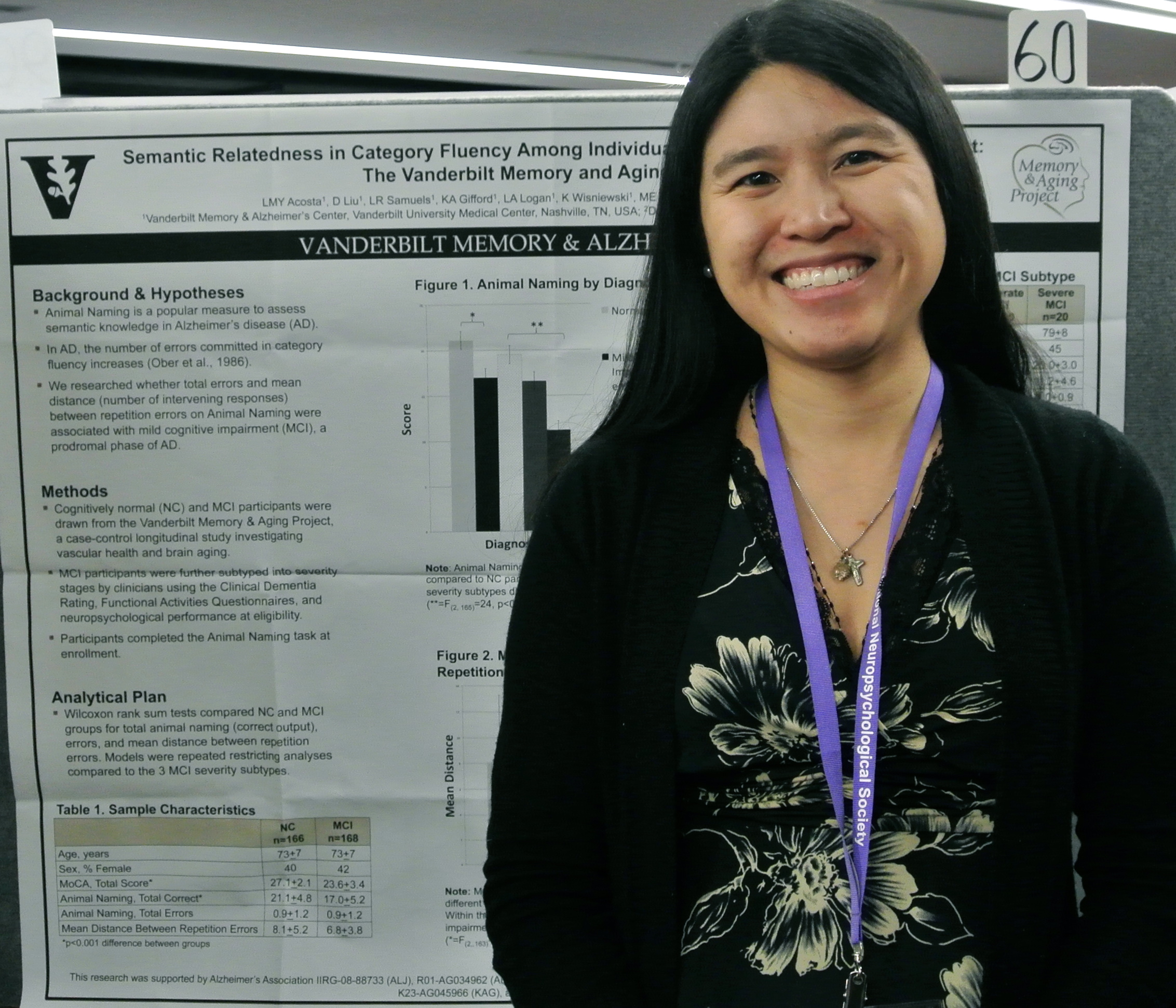
Dr. Leah Acosta (pictured right) is interested in understanding more about the type of mistakes people make when asked to name animals. Naming animals is a way for us to test general knowledge about the world (we call that semantic memory). Dr. Acosta’s research found that people with small changes in memory (or mild cognitive impairment) make the same number of mistakes when naming animals as people with normal memory. However, she noticed that people with mild cognitive impairment tend to be more repetitive (they say the same animal more than once) and say fewer words between their mistakes than people with normal memory.
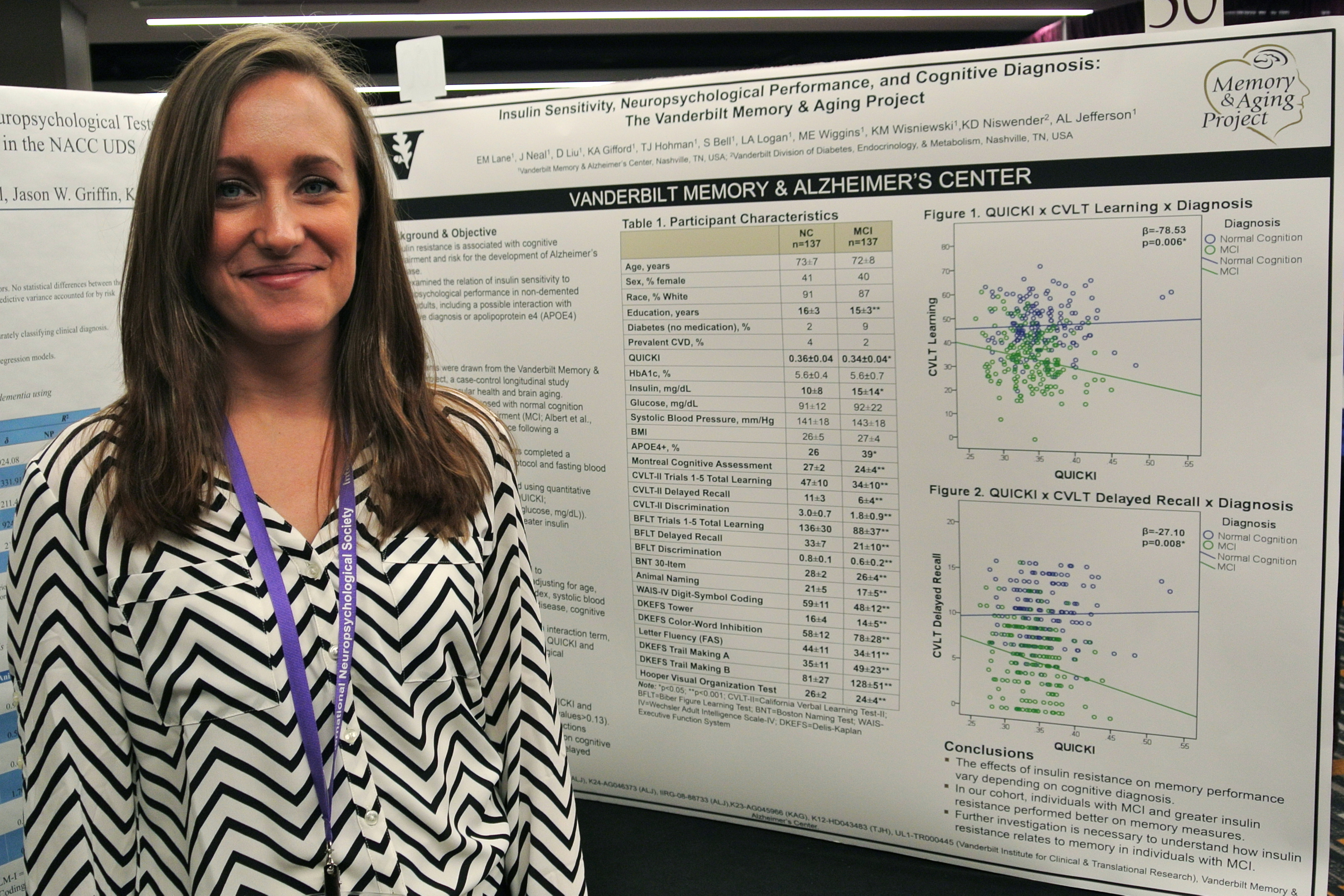 One of our trainees, Dr. Elizabeth Lane (pictured left), presented research looking at insulin resistance and cognitive health. Insulin resistance is when cells in the body do not respond normally to insulin (a hormone that controls blood sugar). Dr. Lane found that insulin resistance was related to memory for words.
One of our trainees, Dr. Elizabeth Lane (pictured left), presented research looking at insulin resistance and cognitive health. Insulin resistance is when cells in the body do not respond normally to insulin (a hormone that controls blood sugar). Dr. Lane found that insulin resistance was related to memory for words.
Dr. Katherine Gifford is interested in 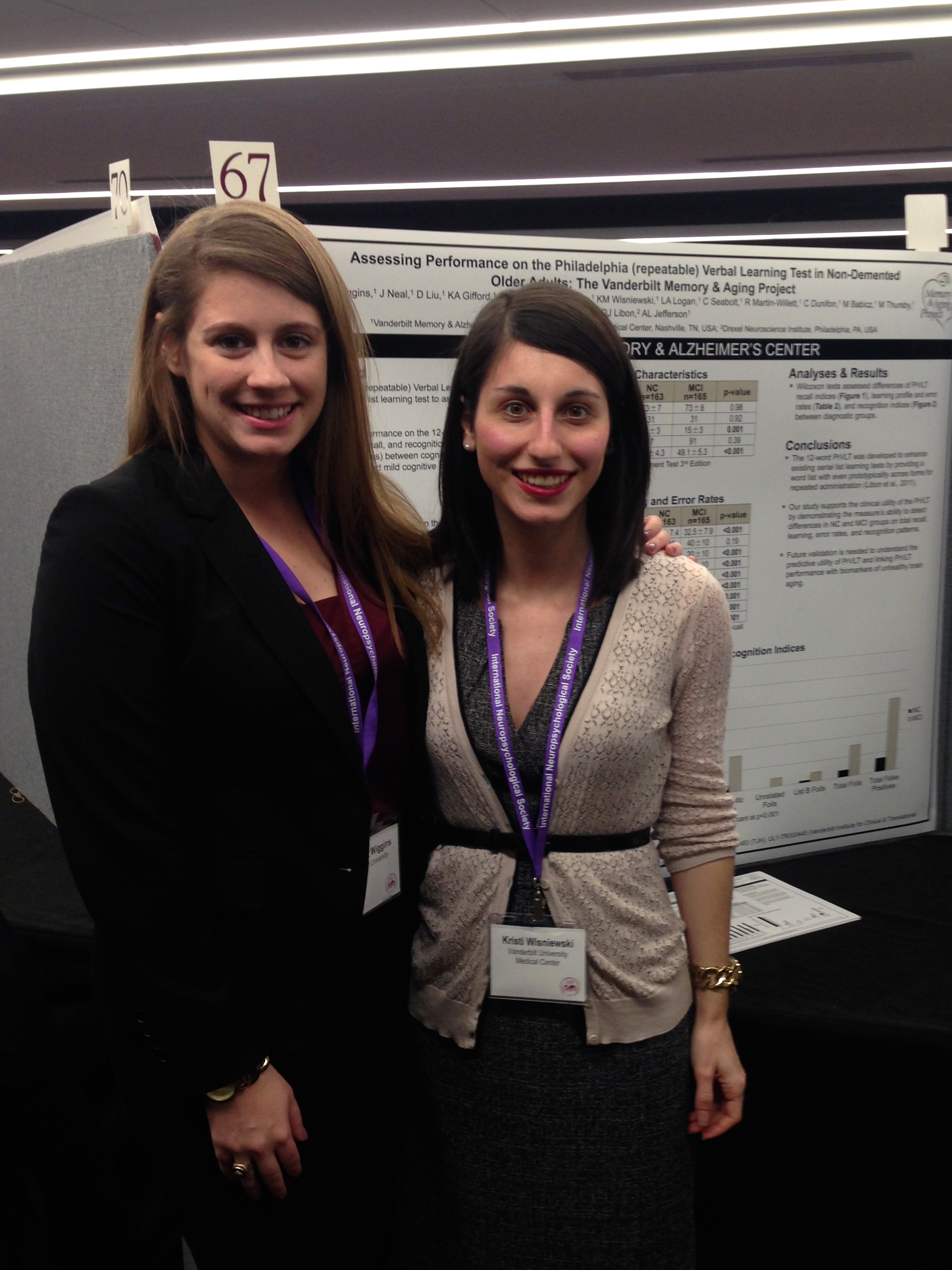 understanding how people begin to notice changes about their memory and thinking. She and her research coordinator, Alexandra Minor, presented on the connection between how people rate their own memory and their participation in enrichment activities. Enrichment activities include enjoying hobbies, participation in social events, and getting exercise. Results from her research point out that people who consistently participate in enrichment activities notice less changes to their memory or thinking. She also found that older adults who notice changes to their memory are more likely to use strategies, like using an appointment book.
understanding how people begin to notice changes about their memory and thinking. She and her research coordinator, Alexandra Minor, presented on the connection between how people rate their own memory and their participation in enrichment activities. Enrichment activities include enjoying hobbies, participation in social events, and getting exercise. Results from her research point out that people who consistently participate in enrichment activities notice less changes to their memory or thinking. She also found that older adults who notice changes to their memory are more likely to use strategies, like using an appointment book.
MAP research staff, Elle Wiggins and Kristi Wisniewski (pictured together right), presented research findings on how MAP participants perform on memory tests that include words and pictures. Their research found that adults with mild cognitive impairment have trouble learning new information. These findings support using these memory tests in clinics as a way to accurately capture memory difficulties among older adults.
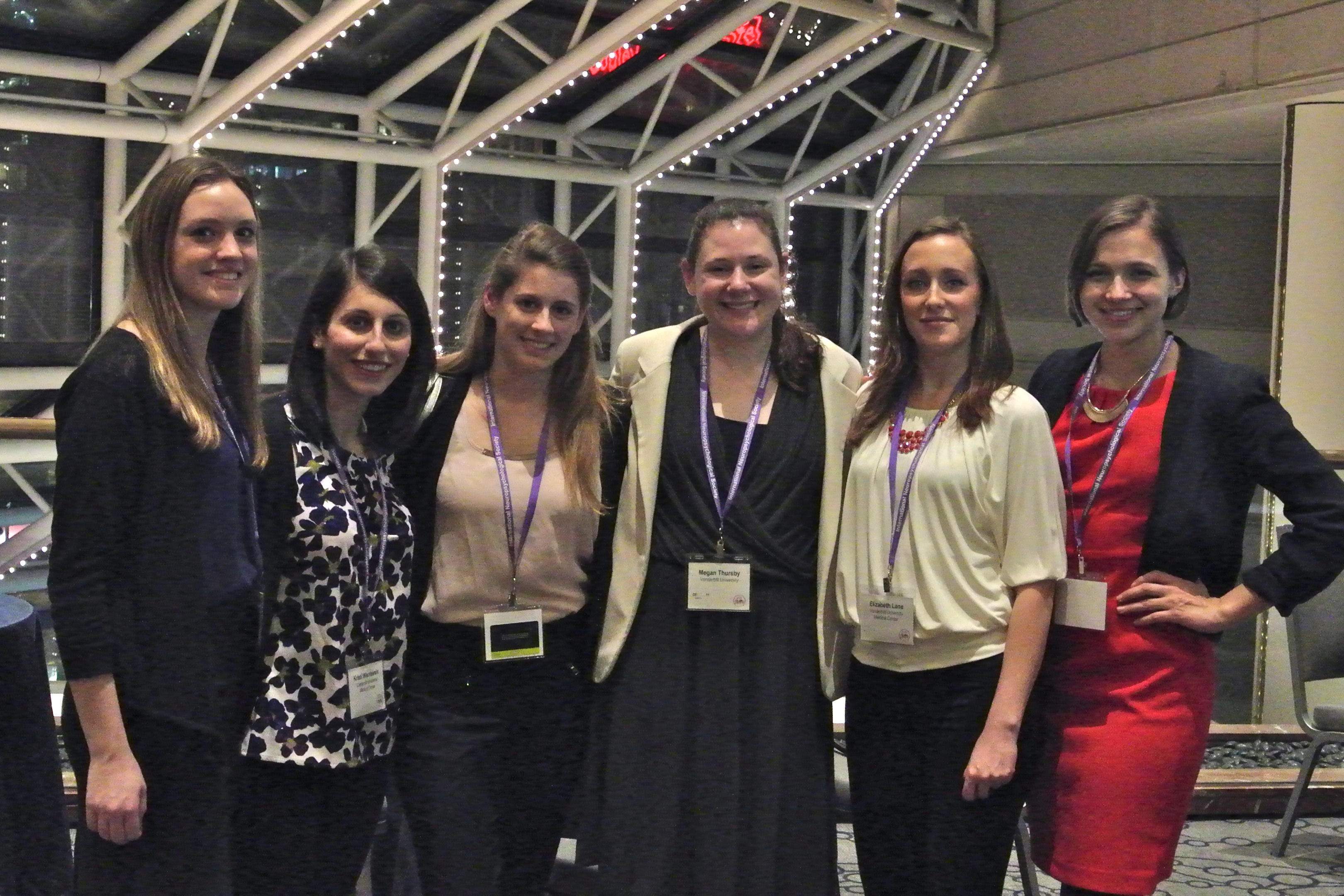
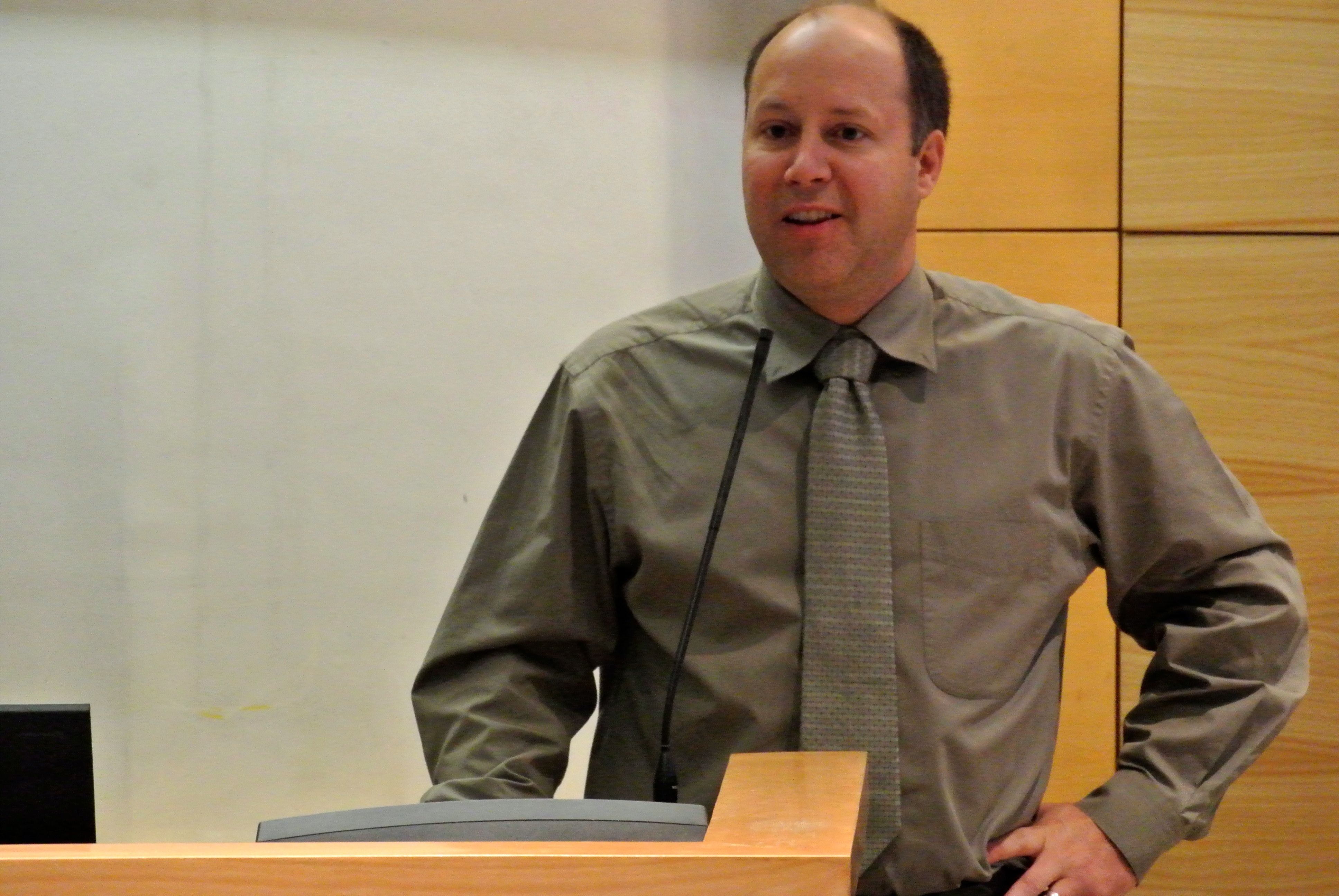 Want to hear about upcoming lectures?
Want to hear about upcoming lectures?